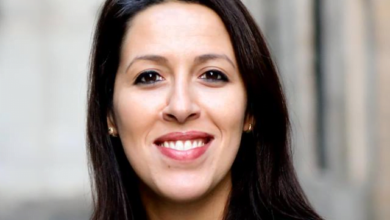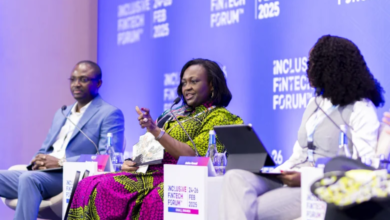On the initiative of Louise Mushikiwabo, Secretary General of the International Organization of the Francophonie (OIF), and as part of the economic strategy for the Francophonie 2020-2025, a business prospection mission has just visited Egypt and Morocco. The aim of the mission was to help French-speaking companies wishing to expand internationally to identify and access new markets, diversify their partnerships and develop synergies and complementarities of a commercial, technological or financial nature. At the end of this first stage, the head of mission, Henri Monceau, spoke to ANA.
The OIF organized a business mission to Africa last week. What were the objectives of this mission and were they achieved?
The recent activity of the Organization internationale de la Francophonie (OIF) in North Africa, notably in Egypt (Cairo) and Morocco (Casablanca), was a business prospection mission aimed at mobilizing companies and economic players in the region for our forthcoming economic and trade missions planned for Greece and Lebanon, and then Canada – Quebec and Ontario.
The visit to Egypt and Morocco highlighted the economic potential of each of these countries, as well as the opportunities for intra-Francophone partnerships in the three targeted business sectors: agro-industry, sustainable energy and digital goods and services. The participation of some 220 companies and business operators, including 55 visiting entrepreneurs from 23 French-speaking countries, the 70 business meetings agreed, the signing of some ten commercial agreements and the planned opening of company branches in other French-speaking countries are all indicators of the success of this forward-looking approach to trade and investment within the French-speaking world.
Could you briefly remind us of the purpose of these business missions and the strategic framework in which they fall? A step towards the creation of this economic market between Francophone countries?
The Business and Trade Missions of the Francophonie are an initiative of Secretary-General of the Francophonie, Louise Mushikiwabo, fitting into the Economic Strategy of the Francophonie 2020-2025. While their strategic objective is to strengthen trade and investment relations between Francophone states and governments, these business missions aim to help Francophone companies wishing to expand internationally to identify and access new markets, diversify their partnerships and develop synergies and complementarities of a commercial, technological or financial nature. The creation of an economic market between French-speaking countries, the final stage in the process of economic integration, is not provided for in the Francophonie’s Economic Strategy 2020-2025 and it is up to the member states and governments to take it up and give it the political impetus it needs if they want it to come into being.
Two countries have been targeted: Morocco and Egypt. The latter is currently the focus of attention. There is even talk of the « awakening » of a future African giant. Do you share this analysis?
«Egypt is a large market with great potential for development in all business sectors and equally great opportunities for partnerships with Francophone companies.”
Egypt is the second largest African economy after Nigeria, according to the IMF’s 2022 data and the third most industrialized country on the continent, based on AfDB’s 2021 data. It is a large market with high development potential in virtually all business sectors and also many opportunities for partnerships with Francophone companies. During this business prospection mission of the Francophonie, the focus was mainly on the agro-food industry, sustainable energy and digital goods and services. We believe these are areas with high development potential in the context of the economic, energy and digital transitions underway in the Francophonie and around the world. The visit to the Suez Canal Economic Zone and Orascom’s green hydrogen plant highlighted this potential for trade and investment in the Francophonie.
What kind of companies was part of this mission to Egypt? What strategic sectors of the Egyptian economy are they interested in?
The 54 Francophone companies that took part in the Egypt/Morocco mission were mainly SMEs and SMBs from 23 countries looking for new markets or new business partners and investors, for example to open branches abroad or accelerate innovation or relocation projects. The Egyptian digital sector, which was very present during the mission, was undoubtedly a major source of attention and inspiration for the Francophone entrepreneurs, as was the energy sector, given the initiatives taken by Egypt in the green hydrogen sector.
Among the latter, there is, no doubt, the digital sector, which you know well. Here too, Egyptian tech is really attractive. How do you analyze the Egyptian tech ecosystem, its strengths and weaknesses?

Egypt has adopted a national digital transformation strategy called Digital Egypt 2030, which aims to invest nearly $320 million in the sector by 2030. This sector is the fastest growing in the country, averaging 16% in 2021/2022, or 5% of GDP. The digital sector is of particular interest because of its specific sectoral and technological links with the Middle East region, which broadens the scope of business opportunities.
Egypt’s economic structure is also home to creative talent in the country’s high-growth sectors, such as agribusiness and green energy management, as well as in the development of financial services, where digital solutions are in high demand. As Arabic and English are the main languages of commerce in Egypt, the place of Francophones needs to be further strengthened. This will create new opportunities for all, which we must build together.
What will be the next business mission?
« Several business missions allow us to bring together Francophone entrepreneurs and create conditions conducive to new business partnerships between Francophone businesspeople”
As mentioned above, the cycle of business and trade missions that began in February 2023 with this prospection mission to North Africa will continue in the Mediterranean region from June 2023, with stops in Greece (Athens) and Lebanon (Beirut), followed by Canada – Quebec (Montreal) and Ontario (Toronto) in the spring of 2024.
A cycle of several business missions will bring together Francophone entrepreneurs from different backgrounds and, over time, create conducive conditions to the creation of new business partnerships between Francophone businesspeople. It is a collective intelligence that is set in motion, but above all it is relationships of trust that are built. La Francophonie is there to support this movement in a sustainable way for the development of its member countries, while reminding us that it is possible to do business in La Francophonie and in French.






